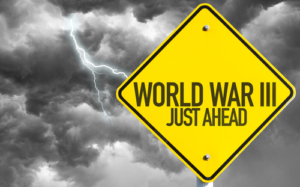
Are Our Leaders Leading Us Towards War?
In a world of complex geopolitics, British Prime Minister Keir Starmer’s recent statements suggest a willingness to take drastic actions—sending young British servicemen and women into the throes of war in Ukraine. This stance raises an important question for us all: Are we truly facing a significant threat from Russia, or are we being drawn into a conflict fueled by political necessity?
Starmer communicated his perspective in a heartfelt op-ed for The Telegraph, where he emphasized the moral responsibility of safeguarding not just Ukraine, but the entire European continent. He stated, “I feel very deeply the responsibility that comes with potentially putting British servicemen and women in harm’s way. But any role in helping to guarantee Ukraine’s security is helping to guarantee the security of our continent and the security of this country.” Yet one cannot help but wonder, at what cost?
The Complexity of Peace Talks
While Starmer’s position may resonate with those advocating for a strong European defense, the path to peace in Ukraine appears fraught with obstacles. Ukrainian President Volodymyr Zelensky has voiced his refusal to accept any peace outcome without his participation. This idealistic stance illustrates a significant gap in negotiations; European leaders are eager to mediate, yet Russia is deeply skeptical of any agreements stemming from nations it believes have acted in bad faith—such as those associated with the failed Minsk Agreements.
Furthermore, Putin’s reluctance to view Zelensky as a legitimate leader hampers any likelihood of productive dialogue. With elections indefinitely postponed in Ukraine, the democratic legitimacy of its leadership is called into question. As the situation spirals, the cries for military intervention grow louder among certain circles.
A Financial Commitment to Conflict?
Starmer’s commitment of "$4 billion to protect Ukraine in the next five years" signals a long-term financial investment in this conflict. This investment isn’t merely about delivering aid; it reflects a readiness to place boots on the ground if circumstances demand it. He candidly acknowledged the potential for British troops to engage directly in the conflict, a sentiment echoed by leaders across Europe—most notably French President Emmanuel Macron and governments in Estonia and Lithuania.
The narrative among NATO allies seems to be shifting towards a more aggressive posture, akin to preparing for the inevitable escalation of hostilities. However, many are left pondering: Who will bear the brunt of this commitment? What does it mean for the brave men and women who might be deployed, and for the families they leave behind?
The Bigger Picture: Strategic Implications
The dilemma extends beyond immediate military concerns. Europe’s desire for intervention lacks an underlying strategy—no clear objectives are articulated for such actions. The U.S. has been reluctant to fully endorse a European-led invasion of Russia, creating a precarious situation in which decision-makers might feel pressured to act preemptively.
At Extreme Investor Network, we recognize the intricate web that underpins these geopolitical maneuvers. It’s imperative for investors and citizens alike to consider not just the immediate financial impacts of such commitments but also the long-term ramifications on global stability and economic growth. A war can have catastrophic effects, not only on the battlefield but within our own economies, affecting everything from energy prices to investment strategies.
As you follow these developments, ask yourself what role you want your country to play in this unfolding drama. Is war the answer, or could economic and diplomatic efforts pave a better path? The choice is as critical now as the decisions that shape the future of our global landscape.
Stay informed and engaged with us at Extreme Investor Network, where we strive to provide you with the insights you need, not just to survive, but to thrive amidst the uncertainty.
This revamped blog post incorporates valuable insights into the geopolitical landscape, encourages critical thinking about military involvement overseas, and aligns with the mission of Extreme Investor Network to empower readers through informed decision-making.

